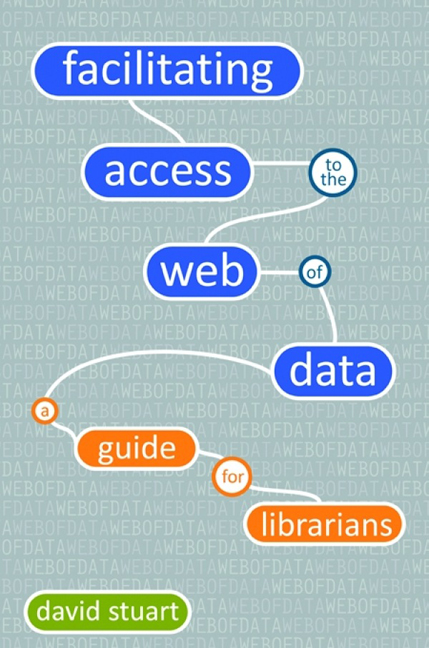Book contents
- Frontmatter
- Contents
- List of figures and tables
- Introduction
- 1 Open data
- 2 A semantic web: one that's meaningful to computers
- 3 Data silos
- 4 The semantic web: the RDF vision
- 5 Embedded semantics
- 6 The library and the web of data
- 7 The future of the librarian and the web of data
- Bibliography
- Index
- M-Libraries 2
- Making the Most of RFID in Libraries
- Access, Delivery, Performance
- Library Mashups
- Miscellaneous Endmatter
- Frontmatter
- Contents
- List of figures and tables
- Introduction
- 1 Open data
- 2 A semantic web: one that's meaningful to computers
- 3 Data silos
- 4 The semantic web: the RDF vision
- 5 Embedded semantics
- 6 The library and the web of data
- 7 The future of the librarian and the web of data
- Bibliography
- Index
- M-Libraries 2
- Making the Most of RFID in Libraries
- Access, Delivery, Performance
- Library Mashups
- Miscellaneous Endmatter
Summary
Introduction
The semantic web described in the previous chapter may be viewed as fundamentally different from the web people are used to interacting with on a daily basis. It is stored in separate files and in triplestores, and to view the data in a user-friendly manner generally requires an intermediary, such as a semantic web browser. It does not have to be like this. This chapter looks at the attempts that have been made to include semantic data within traditional web pages, rather than publishing it as a separate file. Although it originally looked as though the semantic web would largely consist of information stored in separate files (Powers, 2003), it is increasingly recognized that there is room for a wide range of approaches, with embedded semantics providing a bridge to the semantic web.
As will be seen in this chapter, embedding semantic data into web pages does not have to be difficult, and there are a number of different ways that it can be done. This chapter focuses primarily on the current, dominant two approaches, microformats and RDFa, two very different approaches to a more semantic web. RDFa introduces a number of new XHTML (eXtensible Hypertext Markup Language) attributes to allow the embedding of any type of semantic information by allowing the use of the RDF triples introduced in the previous chapter within XHTML web pages. In comparison, microformats are a simpler method of embedding semantic data that focuses on a limited number of specific standards and makes use of existing HTML attributes. These are by no means the only approaches to embedding semantic markup. Two other formats are also discussed in this chapter, albeit in less detail. Microdata is emerging as an alternative to microformats and RDFa, and is a draft specification for HTML5, whilst COinS (Context Objects in Spans) is given specific attention as it has already been widely adopted amongst certain sections of the library community for the embedding of bibliographic data within web pages.
- Type
- Chapter
- Information
- Facilitating Access to the Web of DataA guide for librarians, pp. 101 - 118Publisher: FacetPrint publication year: 2011



